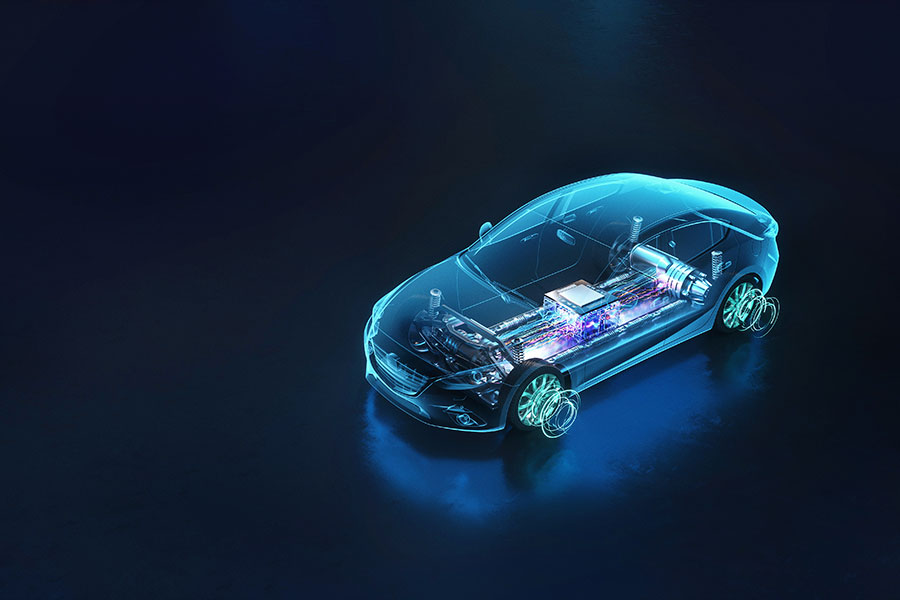
作者: 雷火电竞首页 来源: 日期:2024-06-02 12:18
(JW Insights) Jul 21 -- Chinese firms in the new energy vehicle industry chain have run into taxation, labor force, cultural, and various other challenges as they rapidly expand overseas in pursuit of business and profit, reported Yicai Global on July 20.

Some venture abroad in the wake of NEV manufacturers and set up plants in export destinations closer to their end markets, according to Jiang Yuxiao, board secretary of charging station supplier Shanghai Zhida Technology Development. Because of savage competition in the Chinese market, some expand overseas to swell their profit margins, he added.
Jiangsu Lopal Tech established an Indonesian unit this year that is expected to have an annual output of 120,000 tons of lithium iron phosphate once it becomes operational, the Nanjing-based electrolyte company announced last month.
Anwha Shanghai Automation Engineering, which provides assembly automation integration solutions, plans to build its first overseas base in Thailand to make batteries for SAIC's MG-branded electric cars, it said in May. And battery maker Pylon Technologies and Italy's Energy will jointly invest in and set up the Shanghai-based firm’s first overseas energy storage plant.
But Chinese firms like these face many challenges when expanding overseas, with protectionism relatively severe in Southeast Asia, a popular destination for such companies, Wang Yijia, vice general director of TMF Group's global business development, told Yicai Global recently.
Indonesia requires firms to pay in capital of $$800,000 within two months of incorporation with the signatures of local directors needed on tax filings and salary payments, Wang noted.
India, another emerging Asian economy, is generally more difficult for Chinese firms to invest in. They need to file additional records with India’s central bank when setting up local branches, so approvals are quite hard to come by, Wang pointed out.
Running a business in other countries, including France and Brazil, is also a more complex proposition, according to Wang. The language barrier and rules on information disclosure for environmental, social, and governance are higher in France, while protectionism is also relatively strong in Brazil, where foreign businesses cannot pay taxes unless they hire local executives as representatives, Wang added.
King & Wood Mallesons, Asia’s largest international law firm, gives hourly rates as an example, reminding clients to pay attention to minimum salaries and equal pay for equal work and overtime, a report from the Beijing-based company said, according to the Yicai Global report.
(Gao J/Yuan XY)
(JW Insights) Jul 21 -- Chinese firms in the new energy vehicle industry chain have run into taxation, labor force, cultural, and various other challenges as they rapidly expand overseas in pursuit of business and profit, reported Yicai Global on July 20.

Some venture abroad in the wake of NEV manufacturers and set up plants in export destinations closer to their end markets, according to Jiang Yuxiao, board secretary of charging station supplier Shanghai Zhida Technology Development. Because of savage competition in the Chinese market, some expand overseas to swell their profit margins, he added.
Jiangsu Lopal Tech established an Indonesian unit this year that is expected to have an annual output of 120,000 tons of lithium iron phosphate once it becomes operational, the Nanjing-based electrolyte company announced last month.
Anwha Shanghai Automation Engineering, which provides assembly automation integration solutions, plans to build its first overseas base in Thailand to make batteries for SAIC's MG-branded electric cars, it said in May. And battery maker Pylon Technologies and Italy's Energy will jointly invest in and set up the Shanghai-based firm’s first overseas energy storage plant.
But Chinese firms like these face many challenges when expanding overseas, with protectionism relatively severe in Southeast Asia, a popular destination for such companies, Wang Yijia, vice general director of TMF Group's global business development, told Yicai Global recently.
Indonesia requires firms to pay in capital of $$800,000 within two months of incorporation with the signatures of local directors needed on tax filings and salary payments, Wang noted.
India, another emerging Asian economy, is generally more difficult for Chinese firms to invest in. They need to file additional records with India’s central bank when setting up local branches, so approvals are quite hard to come by, Wang pointed out.
Running a business in other countries, including France and Brazil, is also a more complex proposition, according to Wang. The language barrier and rules on information disclosure for environmental, social, and governance are higher in France, while protectionism is also relatively strong in Brazil, where foreign businesses cannot pay taxes unless they hire local executives as representatives, Wang added.
King & Wood Mallesons, Asia’s largest international law firm, gives hourly rates as an example, reminding clients to pay attention to minimum salaries and equal pay for equal work and overtime, a report from the Beijing-based company said, according to the Yicai Global report.
(Gao J/Yuan XY)
本文来源:雷火电竞首页-www.com900com.com